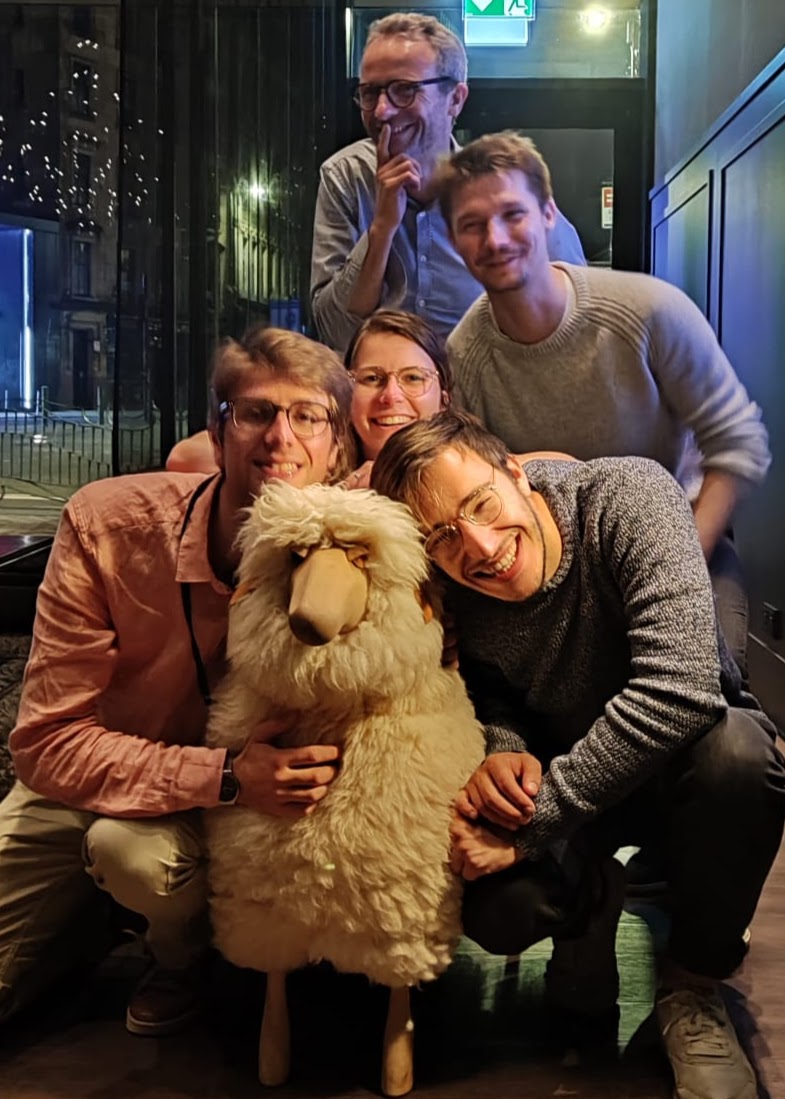Tenured job opportunity – CEA Research Scientist position
Published:
Research scientist in deep learning and neuroimaging for precision psychiatry
- Location: NeuroSpin, CEA, Université Paris-Saclay, Gif-Sur-Yvette, France.
- Job type: Tenured position - research scientist position.
- Employer: CEA.
- Start date: Application due before June 30, 2024. Interviews are expected in September 2024.
- Starting date: Before Dec. 2024
- Salary: Based on education and experience. Healthcare/childcare benefits included.
- Contact: Please send the application to Drs. Edouard Duchesnay (edouard.duchesnay@cea.fr), Antoine Grigis (Antoine.Grigis@cea.fr) with a CV, a list of publications, a cover letter, and at least two letters of recommendation.
- Job offer in pdf
Keywords: Neuroimaging, Machine Learning, Deep Learning, Foundation Models for Neuroimaging, Transfer Learning, Multi-modal fusion of information, Neurosciences, Psychiatry.
Context
NeuroSpin is one of the largest research centers for innovation in brain imaging. At NeuroSpin, physicists, mathematicians, neuroscientists, and physicians join forces to synergistically develop tools and models to better comprehend the functioning of the normal and pathological brain before and/or after treatment. NeuroSpin is part of the Life Sciences Frédéric-Joliot Institute within the Fundamental Research Division of the CEA research agency. It is a member of the Paris-Saclay University ranked 13 at the Shanghai Academic Ranking of World Universities.
NeuroSpin is leading the Artificial Intelligence (AI) analysis of France’s two most significant psychiatry projects in adults (PEPR PROPSY) and children (IHU InovAND). AI models for those projects will be proposed by NeuroSpin’s “signature team,” which aims to design AI models for identifying neuroimaging biomarkers predicting patients’ clinical evolution of mental disorders. The proposed tenured position will be assigned to the “signature team” to supervise the AI analysis strategy.
Job description
The scientific theme will focus on neuroimaging-based AI models in deep learning along two axes of research:
- Designing models to transfer knowledge from extensive (N~10k) “international” neuroimaging datasets from the general population to datasets obtained from smaller groups of patients with psychiatric conditions.
- Designing models for the joint analysis of various neuroimaging modalities (including anatomical, diffusion-weighted, and functional MRI) alongside electroencephalography (EEG), along with clinical information (such as clinical scales, language assessments, and medical records) and “ecological” data acquired from connected devices.
Missions: The research position offers an exciting opportunity to explore innovative AI applications within neuroimaging and psychiatry. Responsibilities include:
- Proposing state-of-the-art AI models and groundbreaking analysis strategies for applications to clinical neurosciences using brain-based phenotypes. The outcomes of these research endeavors will be showcased in prestigious conferences and journals in neuroimaging and psychiatry.
- Spearheading AI methodological research upstream to its clinical application. When existing models are unsuitable for a given problem, the candidate will design new, custom-tailored models. Successful models are expected to be presented in top-tier conferences and journals within the machine learning domain.
- Fostering strong partnerships with AI laboratories and researchers, particularly with the INRIA/CEA MIND laboratory and the LTCI at Télécom (Institut Polytechnique de Paris).
- Mentoring and supervising students (masters, Ph.D. students, post-docs) in crafting and applying models in psychiatry.
- Contributing deep learning expertise to NeuroSpin’s teams. This multifaceted role promises an engaging and impactful journey at the intersection of AI, psychiatry, and neurosciences.
Candidate profile
- PhD in image, signal processing, or statistical learning.
- The candidate will have demonstrated scientific excellence in statistical and deep learning in medical imaging through publications in leading conferences in machine learning, neuroimaging, and psychiatry.
- The candidate should be able to define the broad lines of a research vision in neuroimaging and psychiatry and contribute to the team’s development by regularly responding to calls for projects in the field.
- The candidate should be proficient in Python machine/deep learning libraries and be familiar with high-performance computing (HPC) infrastructures.
- Experience supervising interns, engineers, PhD students, and/or post-docs would be a plus.
- Interest in neuroscience is a prerequisite.
- Understanding psychiatry, neuroimaging, and/or neuroscience issues and their intersecting roles is a plus.
- The candidate should have strong experience and a justified interest in teamwork.
- Although extensive experience will be an asset, junior candidates are welcome in the measure that they fulfill the first 4 above listed points.
- Finally, the candidate must be fluent in English to interact in a multidisciplinary and international environment.
